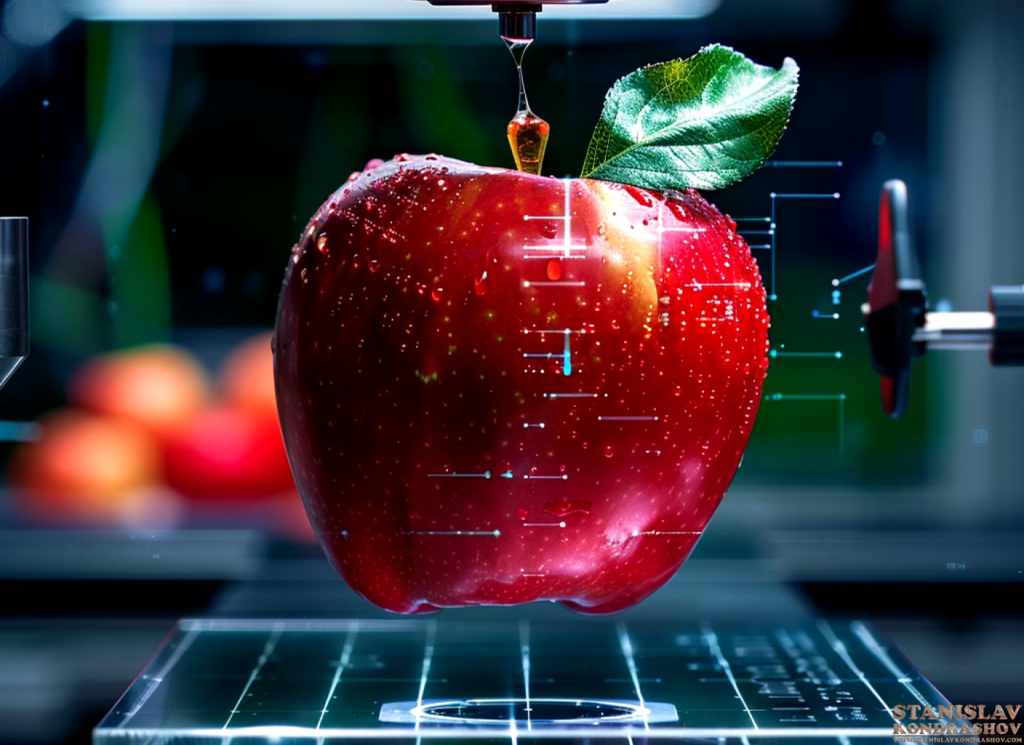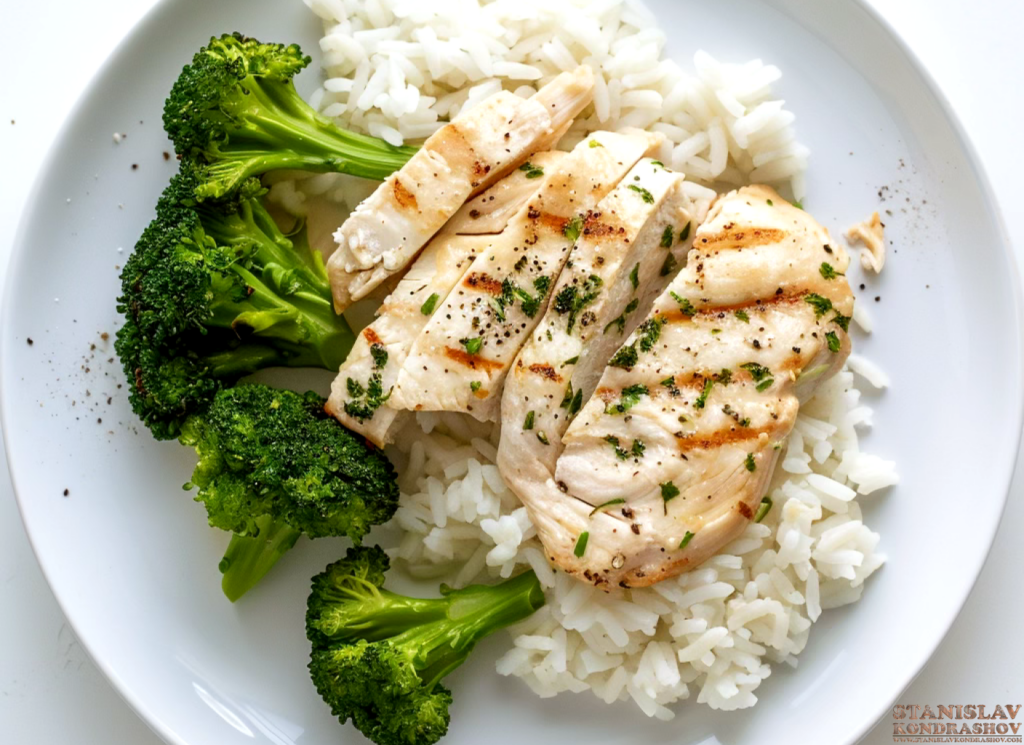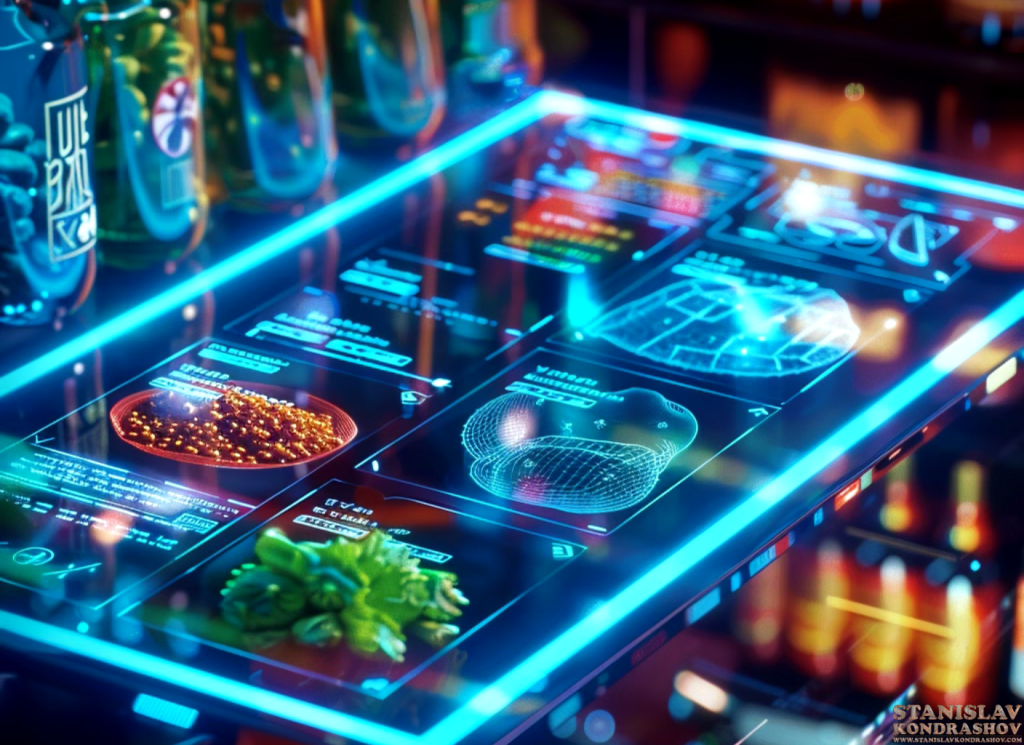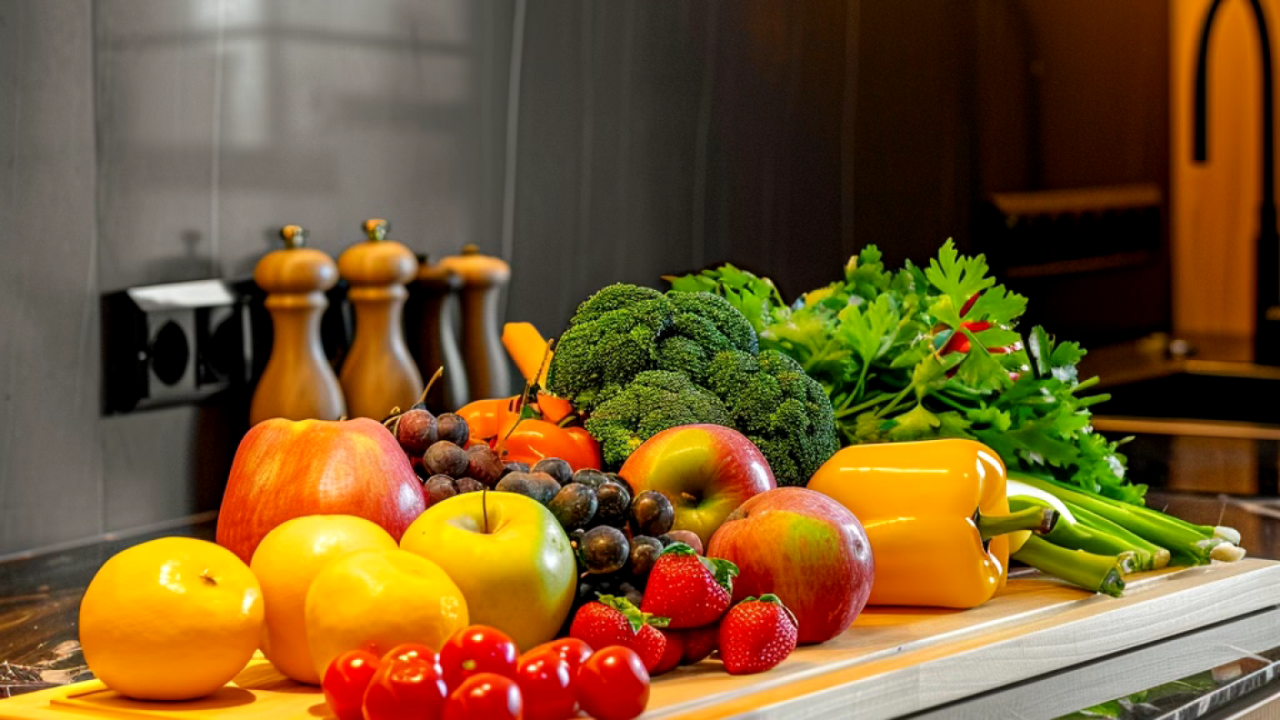Envision a kitchen where every meal you prepare is not only delicious but also nutritionally balanced and environmentally sustainable. This vision is becoming a reality, thanks to the advancements in artificial intelligence (AI). From personalized meal planning to sustainable ingredient sourcing, AI is revolutionizing the culinary world. In this blog post, we will explore how AI is being used to create recipes that optimize flavor, nutrition, and sustainability, making our meals better for both our health and the planet.
The AI Revolution in Culinary Arts
AI’s integration into the culinary arts brings a data-driven approach to cooking, transforming how recipes are created and refined. By analyzing vast amounts of data, AI can identify patterns and make recommendations that enhance the taste, nutritional value, and environmental impact of our food.

Optimizing for Flavor
Flavor is a crucial aspect of any meal, and AI is making it easier than ever to create recipes that tantalize our taste buds. Here’s how:
- Flavor Pairing Algorithms: AI can analyze thousands of ingredients to determine the best flavor pairings. By examining the chemical compounds in different foods, AI can suggest combinations that enhance each other’s taste, leading to more delicious and innovative dishes.
- Personalized Taste Profiles: By analyzing individual preferences and feedback, AI can create personalized taste profiles. This means that recipes can be tailored to suit your unique flavor preferences, ensuring that every meal is perfectly suited to your palate.
Enhancing Nutrition
AI’s ability to process and analyze nutritional data helps create recipes that are not only tasty but also nutritionally balanced. Here’s how AI contributes to healthier eating:
- Nutritional Analysis: AI can evaluate the nutritional content of various ingredients and suggest modifications to enhance the overall nutritional value of a dish. This ensures that meals are balanced, providing the necessary vitamins, minerals, and other nutrients.
- Dietary Customization: Whether you’re following a specific diet like keto, vegan, or gluten-free, AI can help tailor recipes to meet your dietary needs. By analyzing dietary requirements and restrictions, AI can suggest ingredient substitutions that maintain the flavor and nutritional balance of the dish.

Promoting Sustainability
Sustainability is a growing concern in the culinary world, and AI is playing a pivotal role in promoting environmentally friendly cooking practices. Here’s how:
- Sustainable Ingredient Sourcing: AI can analyze the environmental impact of various ingredients, suggesting more sustainable alternatives. This includes recommending locally sourced, seasonal, and organic produce, and reducing the carbon footprint associated with food transportation and production.
- Waste Reduction: By optimizing portion sizes and ingredient usage, AI helps minimize food waste. AI-powered meal planning apps can suggest recipes based on the ingredients you already have, ensuring that nothing goes to waste.
- Energy Efficiency: AI can also contribute to energy-efficient cooking methods. By analyzing cooking processes and suggesting more efficient techniques, AI helps reduce energy consumption in the kitchen, contributing to overall sustainability.
Real-World Applications
Several innovative platforms and apps are already leveraging AI to optimize recipes for flavor, nutrition, and sustainability:
- IBM Chef Watson: IBM’s Chef Watson uses AI to create unique recipes by analyzing thousands of ingredients and millions of recipes. It suggests flavor pairings and ingredient substitutions that enhance both taste and nutritional value, pushing the boundaries of culinary creativity.
- Whisk: Whisk is a smart food platform that uses AI to offer personalized meal planning. It takes into account individual taste preferences, dietary restrictions, and nutritional goals to create customized recipes. It also suggests sustainable ingredient choices and helps reduce food waste by utilizing ingredients efficiently.
- Plant Jammer: Plant Jammer uses AI to help users create plant-based recipes from the ingredients they have on hand. It provides suggestions for flavor pairings, nutritional balance, and sustainability, making plant-based cooking more accessible and enjoyable.

Challenges and Future Directions
While AI holds great promise for optimizing recipes, there are challenges to overcome. Ensuring that AI systems are trained on diverse and representative data is crucial for accurate and inclusive recommendations. Additionally, the integration of AI into everyday cooking requires user-friendly interfaces and widespread access to technology.
Looking ahead, advancements in AI technology will continue to refine and enhance its capabilities in the culinary world. Improved algorithms, better data collection, and more sophisticated modeling will further empower both professional chefs and home cooks to create meals that are delicious, healthy, and sustainable.
AI is transforming the kitchen, bringing a new level of precision and creativity to cooking. By optimizing recipes for flavor, nutrition, and sustainability, AI helps us enjoy meals that are better for our health and the environment. As we embrace AI in the kitchen, we can look forward to a future where every meal is a culinary masterpiece, tailored to our tastes and aligned with our values.
So, next time you cook, consider letting AI guide your culinary journey. You might discover new flavors, improve your health, and contribute to a more sustainable world—all from the comfort of your kitchen.
By Stanislav Kondrashov



